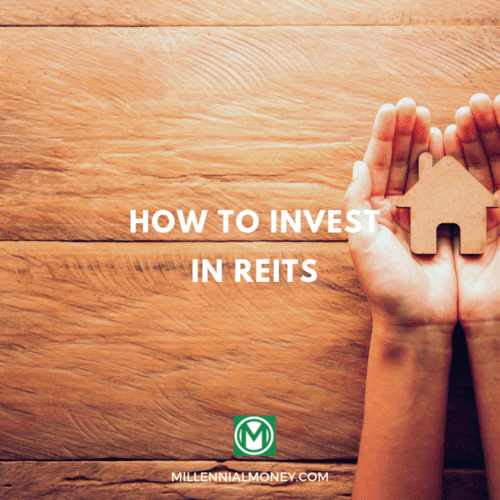Whether you’ve just invested in a new property or are deciding to turn your dwelling into a rental home, it can be difficult for any homeowner or real estate investor to land the first tenant.
Instead of doing it on their own, many investors in this situation opt to outsource this time-consuming undertaking to a realtor. By doing so, you can have someone on your team who’s incentivized to rent your house in exchange for a slice of monthly rent.
Renting Your House With an Agent: Step-by-Step Guide
- Run a Home Valuation Report
- Make Sure You’re Allowed to Rent Your Property
- Find a Quality Real Estate Agent
- Scour the Contract
- Consider Upgrading Your Rental Property
- Leave Renting To the Real Estate Agent
- Hire a Property Management Company
1. Run a Home Valuation Report
Before you decide to move forward with leasing and start looking for potential tenants, contact your lender and ask for a custom valuation report.
The valuation report should give property owners an estimated rental value based on square footage and property value. The rate will also factor in what similar properties in your area are renting for.
Once you have an estimation of how much you can rent your place for, you’ll have a much easier time going to market in your search for tenancy. This can prevent you from listing your property and having to bring the price down because it’s too high and out of touch with other rent prices in the area. It can also prevent you from undercutting the market and pricing your house too low.
2. Make Sure You’re Allowed to Rent Your Property
Another important step that you’ll want to complete early on is to check your paperwork and make sure you’re allowed to rent your property.
This mainly applies to people who hold properties in structures like condos and apartment complexes, as well as houses in gated communities and those with HOAs.
Certain communities restrict renting or require you to gain approval before you can move forward. Failure to ask could result in fines and penalties. As such, it’s important to do your due diligence before moving forward with this idea.
3. Find a Quality Real Estate Agent
The next step is to hire a high-quality real estate agent who can help you rent your property. The agent you select should be sharp as a tack and an expert in your local market.
It’s important to remember too that the agent doesn’t have to be the same one who helped you close the property. In fact, real estate investors often use different agents who specialize in certain areas. Not all agents buy, sell, and rent properties.
Take your time when looking for a real estate agent and treat the process like a job interview. Look for online reviews and make sure the agent has a demonstrated history of success.
It’s also important to find someone likable with whom you have chemistry. After all, this person will be directly dealing with renters. You don’t want an agent who will scare people off from renting your property in the first place.
What’s more, the agent should be trustworthy. Go with your instinct and make sure you feel comfortable working with them.
4. Scour the Contract
Before you sign a contract with an agent, take it home and review it. It’s also a good idea to run the contract by an attorney to protect yourself. An attorney will be able to cut through the legalese and make sure everything looks normal.
By joining forces with a lawyer, you’ll have an easy way out if the agent proves to be negligent or difficult to work with.
The last thing you want to do is get into a situation where an agent takes responsibility for renting your place and proves to be incapable. If this happens, you will likely need to terminate the contract and find a new agent.
5. Consider Making Capital and Cosmetic Upgrades to Your Rental Property
At this point, you should have a general idea of whether you have clearance to rent your space and how much you can ask in rent. You should also have a trustworthy agent to help you maximize your return on your investment.
Here, you should consult with the real estate agent about making capital upgrades to potentially rent your place for more money. You want to do this after hiring an agent so you don’t accidentally put too much money into your place and risk increasing the value and renting price by too much.
The real estate agent should be able to look at your place and tell you what you should upgrade and where you can potentially cut corners to save money. This may include things like installing or removing carpets, replacing windows or adding a backyard deck, among other things.
The amount of capital you put into your rental home can impact the rent you charge and the security deposit you require. If you make the right upgrades, you could drive the rental price up considerably, which will pay dividends down the road.
Learn More:
6. Leave Renting To the Real Estate Agent
Once you hire a real estate agent, leave the process of signing lease arrangements and listing the property on sites like Zillow, Trulia, Realtor.com, and Craigslist up to them.
If you attempt to interfere too much, you could thwart the agent’s strategy and make it harder for them to do their job.
Working with a realtor usually requires surrendering some amount of control, which can take some getting used to.
How a Rental Agent Gets Paid
A rental agent typically receives a cut whenever a tenant signs a lease. In some cases, a tenant agent may also get involved to help sign a lease. When a rental agent and tenant agent work together, they typically split the commission. The type of arrangement you have with an agent depends largely on the type of rental you have and how often you rent your space.
7. Hire a Property Management Company to Deal with Renters
Don’t make the mistake of thinking the real estate agent will clean up after guests or look after the landscaping. That’s not their job.
The agent is solely responsible for keeping a place rented. Further, a good agent will expect a property to be in top condition when showing it to prospective renters.
This is where it pays to outsource. Find a property manager and pay them a monthly fee to keep your property looking clean and presentable.
The property management company should also serve as a liaison for tenant communication. When tenants require maintenance and repairs, they should go through the property management company. They can also help with evictions, but let’s hope you never have to deal with such a scenario.
You don’t have to hire a property management company. But many landlords find it easier to go through a third-party provider than deal with tenants directly. It largely depends on your budget and the amount of time you have to devote to property management.
Benefits of Working with a Rental Agent
Generate a Steady Cash Flow From Rental Income
Owning a rental property can be very expensive—especially if you already have a home mortgage. As such, it’s important to avoid vacancies at all costs. The trick is to keep your property perpetually occupied so that you receive a steady cash flow.
A quality real estate agent will go to work before a lease expires, sourcing prospective tenants so they can easily roll new tenants in. This can prevent occupancy gaps, putting more money in your pocket, and drive a higher return on your investment.
Save Time and Hassle
Renting a property can take up a lot of time and require a significant amount of backend work. You might need to take time off from work or put in some extra hours on nights and weekends.
A real estate agent can save you a lot of heavy lifting by showing your property to tenants, hosting open houses, conducting background checks and tenant screening, running credit reports, filling out paperwork, and closing lease agreements.
At the end of the day, it’s much easier and more efficient to work with a real estate agent than to do this work yourself.
Maximize Returns
Money matters more than anything when renting. By working with a savvy agent, you can save money and maximize your rental rate. An agent will be able to tell you if your rent is too high or too low, and how to make more money from tenants—protecting your investment and boosting your bottom line.
Frequently Asked Questions
Can I move into my rental property?
As a landlord, you have the right to do what you want with your property. However, moving into your rental property means you won’t bring in any money—which, of course, will interrupt your cash flow from the investment. Understand the difference between a rental property and a home. A rental property makes you residual income, while a home is primarily for dwelling.
What is a lease agreement?
A lease agreement is a legally binding document between a landlord and a tenant that outlines the scope of a property rental. A lease agreement is necessary when renting a house or apartment to one or more individuals.
Do you need an agent to rent an investment property?
You don’t need an agent to rent an investment property, and some landlords prefer to work alone. It largely depends on how much experience you have and the amount of time you are willing to devote to the process.
What if you don’t make any income in the first month when working with a real estate agent?
A solid agent should be able to find you a renter to move in very quickly. However, if a month or longer goes by, you should try to find out what is holding the process up. Request a meeting with the realtor to gain an understanding of what’s wrong. Ask if the rent is too high or if the place needs more upgrades.
Avoid firing the real estate agent until it’s abundantly clear that they are responsible for poor metrics. Be patient and hold out for a bit longer until someone hopefully comes along. This kind of scenario illustrates why it pays to keep emergency money on hand to pay your mortgage, utilities, property management company, and other bills.
The Bottom Line
If you’re serious about making money from your investment property, you should strongly consider renting your house with an agent. It saves you time and hassle while increasing your chances of driving profits.
Best of all, rental agents typically don’t cost anything upfront. They usually charge a commission (e.g., a month’s rent) only after bringing in new tenants. So, there’s really no risk to the process.
By partnering with the right agent and leveraging their expertise, you’ll land a tenant in no time, kickstarting your journey toward long-term financial independence.





No comments yet. Add your own